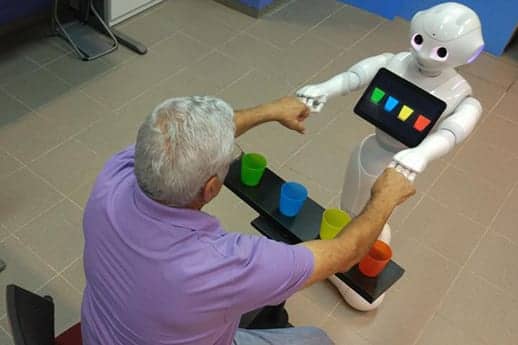A study published recently in Science Robotics looks at the use of socially assistive robots (SARs) as aids to patients undergoing rehabilitation.
In the study, a research team led by neuroscientist Dr Philipp Kellmeyer of the Freiburg University Medical Center and Prof Dr Oliver Müller from the Department of Philosophy of the University of Freiburg, analyzes the improvements necessary to make SARs valuable and trustworthy assistants for medical therapies.
The development of SARs not only requires technical improvements, but primarily social, trust-building measures, the researchers conclude, according to a media release from University of Freiburg.
Rehabilitation patients in particular are dependent on a reliable relationship with their therapists. So there must be trust in the safety of the robotic system, especially regarding the predictability of the machines’ behavior. Given the ever-growing intelligence of the robots and with it their independence, this is highly important.
In addition, robots and patients can only interact well, the scientists explain, when they have shared goals that they pursue through the therapy. To achieve this, aspects of philosophical and developmental psychology must also be taken into account in the development of SARs: the ability of robots to recognize the aims and motives of a patient is a critical requirement if cooperation is to be successful.
So there must also be trust for the participants to adapt to one another, the release continues. The frustration felt by patients, for instance as a result of physical or linguistic limitations, would be avoided if the robots were adapted to the specific needs and vulnerabilities of the patient in question.
[Source(s): University of Freiburg, EurekAlert]




